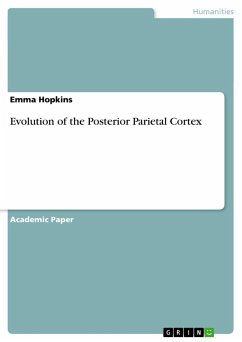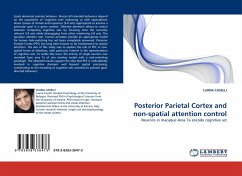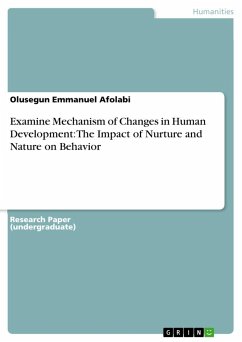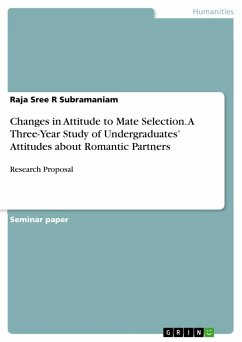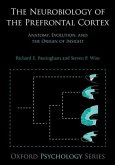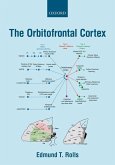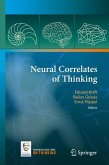Academic Paper from the year 2012 in the subject Psychology - Biological Psychology, grade: BSc, Royal Holloway, University of London (Psychology department), course: Psychology, language: English, abstract: The following paper investigates evolutionary changes in the primate brain; specifically the Posterior Parietal Cortex. Changes in volume are observed and consideration toward possible species-specific behaviours are discussed.Current research on the Posterior parietal cortex in primates has difficulty accommodating the inferior parietal lobule (Husain & Nachev, 2007). In this study neuroanatomical data from human and non human primates is used to investigate the evolutionary changes in the primate posterior parietal cortex (PPC); specifically the Inferior parietal area. All species were tested using three different investigations. One investigation included comparing the whole volume of the PPC against the volume of the whole cortex, a second comparing the volumes of the internal subdivisions of the PPC, more precisely the superior parietal lobule (SPL) and the inferior parietal lobule (IPL) against the volume of the whole PPC. The third investigation involves comparing the volume of individual structures against the volume of their respective hemispheres (e.g. the left hemisphere of the SPL against the volume of the entire SPL). 27 in vivo primate brain scans were analyzed in total using MRI scans from six different species including humans, great apes and monkeys. Image analysis software was used to calculate total brain volumes. Allometric regression analysis was used to compare the relative volumes of brain structures across species, in order to determine whether human brain segments corresponded with predicted evolutionary trends based on non-human primate allometric trajectories. Analysis supports the prediction that humans and great apes show an increased volume within in the PPC in comparison to monkeys. Findings did not support this papers predication that the human IPL; specifically the left hemisphere, would be greater in volume compared to non-human primates. However, findings indicate that the left IPL has increased in volume among humans and great apes samples, in comparison to capuchin and macaque monkeys. The findings of this study provide additional insight into the evolution of the human brain beyond what is shown by volumetric analysis, by indicating the unique and exciting modifications in the human brain over the course of evolution. These modifications may represent some of the neurobiological changes which support human specializations in cognitive and behavioral abilities.

